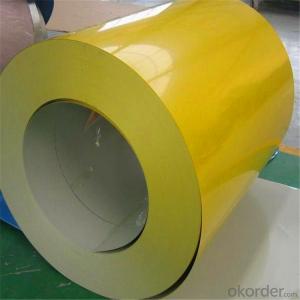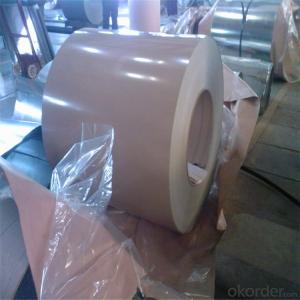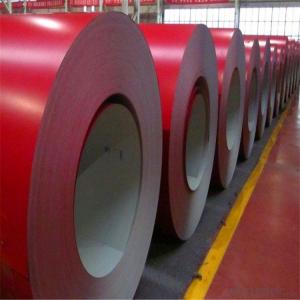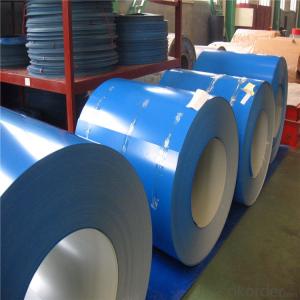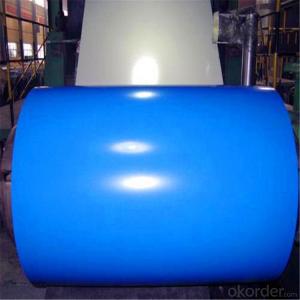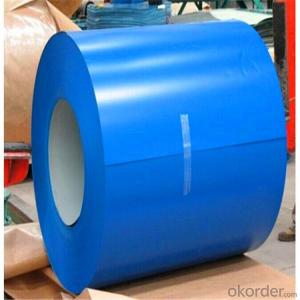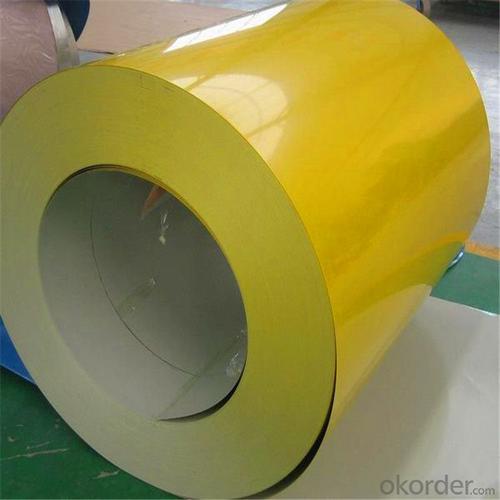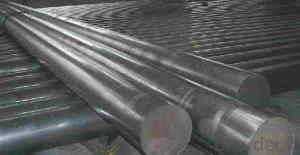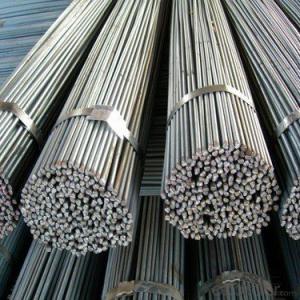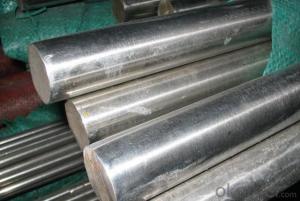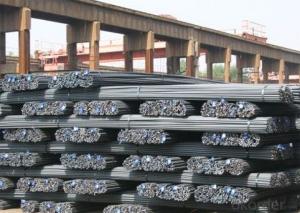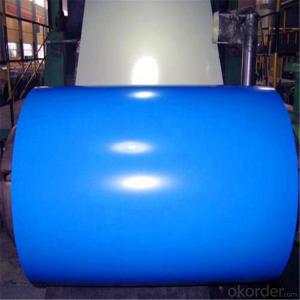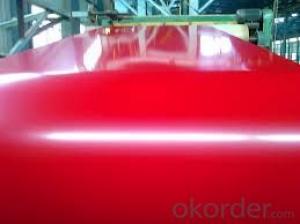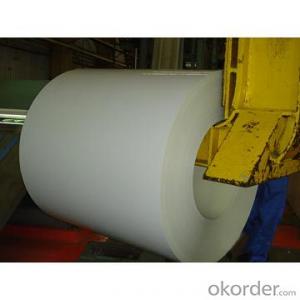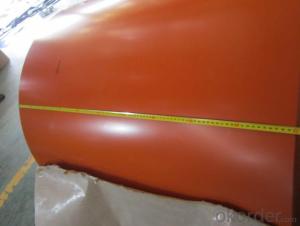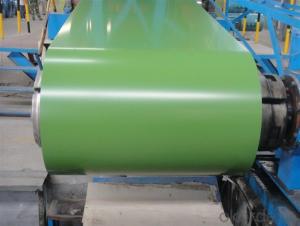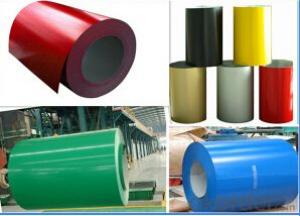Prime Pre-painted Galvanized Steel Coil PPGI
- Loading Port:
- Tianjin
- Payment Terms:
- TT OR LC
- Min Order Qty:
- 100 watt
- Supply Capability:
- 50000 watt/month
OKorder Service Pledge
OKorder Financial Service
You Might Also Like
Specification
Prime Pre-painted Galvanized Steel Coil PPGI
Description of Prime Pre-painted Galvanized Steel Coil PPGI
Product | PPGI/PPGL |
Capacity | 5,000 tons/month |
Base material | Hot dipped galvanized steel |
Thickness | 0.2-2.0mm |
Width | 600-1250mm(according to your need) |
Coil Weight | 3-6tons |
Quality | SGCC, DX51D |
Color | RAL No. or customers samples’ color |
Zinc-coating | 30g/m2-180g/m2 |
Coil ID | 508mm/610mm |
Technique | Cold rolled—hot dipped galvanized—color coated |
Painting | Top painting:15~25μm |
Back painting: 6~10μm | |
Tolerance | Thickness: +/-0.02mm |
Width:+/-2mm | |
Shipment time | within 15-45 workdays |
Payment | T/T, L/C at sight |
Packing | Standard export packing |
The special order can be negotiated. | |
Application of Prime Pre-painted Galvanized Steel Coil PPGI
APPLICATION OF OUR PREPAINTED STEEL | ||||||||||
Construction | Outside | Workshop,agricultural warehouse,residential precast unit | ||||||||
corrugated roof,roller shutter door,rainwater drainage pipe,retailer booth | ||||||||||
Inside | Door,doorcase,light steel roof stucture,folding screen,elevator,stairway,ven gutter,Construction Wall | |||||||||
Electrical applicance | Refrigerator,washer,switch cabnet,instrument cabinet,air conditioning,micro-wave owen,bread maker | |||||||||
Fuiniture | Central heating slice,lampshade,chifforobe,desk,bed,locker,bookself | |||||||||
Carrying trade | Exterior decoration of auto and train,clapboard,container,isolation lairage,isolation board | |||||||||
Qthers | Writing panel,garbagecan,billboard,timekeeper,typewriter,instrument panel,weight sensor,photographic equipment | |||||||||
Products Show of Prime Pre-painted Galvanized Steel Coil PPGI

Product Advantages
1.With nearly 20 years experience in prepainted steel, accommodate different marketdemands. | ||||||||||||||
2.'Quality first, service first' is our business aim; 'The good faith get respect,cast quality market' is our Business philosophy . | ||||||||||||||
3.Having two series producttion line,with the abbual production capacity of 240000 tons. | ||||||||||||||
4.Exceed International ISO9001:2008&ISO14001:2004 quality and environmental standards | ||||||||||||||
5.Meet with ROHS standard |
Company Information
CNBM International Corporation is the most important trading platform of CNBM group.
Whith its advantages, CNBM International are mainly concentrate on Cement, Glass, Iron and Steel, Ceramics industries and devotes herself for supplying high qulity series of refractories as well as technical consultancies and logistics solutions.


F A Q
1, Your advantages?
professional products inquiry, products knowledge train (for agents), smooth goods delivery, excellent customer solution proposale
2, Test & Certificate?
SGS test is available, customer inspection before shipping is welcome, third party inspection is no problem
3, Factory or Trading Company?
CNBM is a trading company but we have so many protocol factories and CNBM works as a trading department of these factories. Also CNBM is the holding company of many factories.
4, Payment Terms?
30% TT as deposit and 70% before delivery.
Irrevocable L/C at sight.
5, Trading Terms?
EXW, FOB, CIF, FFR, CNF
6, After-sale Service?
CNBM provides the services and support you need for every step of our cooperation. We're the business partner you can trust.
For any problem, please kindly contact us at any your convenient time.
We'll reply you in our first priority within 24 hours.
- Q: What are the different joining methods for special steel?
- Some of the different joining methods for special steel include welding, brazing, soldering, and adhesive bonding.
- Q: What are the different surface finishes available for special steel?
- There are several different surface finishes available for special steel, including polished, brushed, satin, and matte finishes. Each finish offers a unique appearance and texture, allowing for customization and versatility in various applications. Additionally, special coatings such as powder coating or electroplating can be applied to enhance the surface finish and provide additional protection against corrosion or wear.
- Q: What are the main advantages of using special steel in the aerospace industry?
- The main advantages of using special steel in the aerospace industry are its high strength-to-weight ratio, excellent corrosion resistance, and superior heat resistance. Special steel allows aircraft to be lighter, yet still maintain the necessary structural integrity and safety standards. Its resistance to corrosion ensures the longevity of the aircraft, even in harsh environments. Additionally, special steel's ability to withstand high temperatures makes it suitable for use in jet engines and other crucial components, ensuring optimum performance and safety in aerospace applications.
- Q: How is high-temperature steel used in the production of furnace components?
- High-temperature steel is used in the production of furnace components due to its exceptional heat resistance and strength. This type of steel can withstand extreme temperatures without losing its structural integrity, making it ideal for lining furnace walls, constructing heating elements, and manufacturing other critical parts that are exposed to intense heat.
- Q: How does special steel contribute to the aerospace landing gear industry?
- Special steel plays a vital role in the aerospace landing gear industry by providing the necessary strength, durability, and resistance to extreme conditions. It enables the landing gear to withstand heavy loads, high temperatures, and corrosive environments, ensuring the safe landing and takeoff of aircraft. Additionally, special steel's lightweight properties help reduce the overall weight of the landing gear, resulting in improved fuel efficiency and increased payload capacity.
- Q: What are the effects of different heat treatment processes on special steel?
- Different heat treatment processes can have significant effects on the properties and performance of special steel. These processes are designed to alter the microstructure of the steel, thereby influencing its hardness, strength, toughness, and other mechanical properties. One commonly used heat treatment process is annealing, which involves heating the steel to a specific temperature and then slowly cooling it down. Annealing helps to relieve internal stresses, improve machinability, and enhance the ductility of the steel. It also refines the grain structure, making the steel more uniform and reducing the risk of cracks or other defects. Another heat treatment process is quenching, where the steel is heated to a high temperature and then rapidly cooled by immersing it in a quenching medium such as oil or water. This process results in the formation of a hardened microstructure, increasing the steel's hardness and wear resistance. However, quenching can also make the steel brittle, so it is often followed by a tempering process. Tempering involves reheating the quenched steel to a lower temperature and holding it there for a specific duration. This process helps to reduce the brittleness caused by quenching and improve the steel's toughness and ductility. The resulting microstructure is a balance between hardness and toughness, making the steel suitable for applications that require both strength and impact resistance. Other heat treatment processes, such as normalizing and stress relieving, can also be used to achieve specific properties in special steel. Normalizing involves heating the steel to a temperature above its critical point and then allowing it to cool in still air. This process refines the grain structure and improves the steel's strength and machinability. Stress relieving, on the other hand, aims to remove residual stresses from the steel by heating it to a temperature below its critical point and then slowly cooling it. In summary, the effects of different heat treatment processes on special steel are manifold. These processes can modify the steel's microstructure, resulting in changes in hardness, strength, toughness, and other mechanical properties. By selecting the appropriate heat treatment process, manufacturers can tailor the steel's characteristics to suit specific applications, ensuring optimal performance and longevity.
- Q: What are the properties of high-temperature steel?
- High-temperature steel possesses several key properties including excellent strength, resistance to thermal fatigue, oxidation and corrosion resistance, good thermal conductivity, and the ability to maintain its mechanical properties even at elevated temperatures.
- Q: What are the different marine grades of special steel?
- There are several marine grades of special steel commonly used in marine applications. Some of the most widely known grades include 316, 316L, and 2205. These grades are specifically designed to resist corrosion and maintain their strength and integrity in harsh marine environments. Additionally, other grades such as 304 and 904L are also used in marine applications for their corrosion resistance properties.
- Q: What are the main characteristics of heat-resistant steel?
- The main characteristics of heat-resistant steel include high resistance to oxidation, excellent strength at elevated temperatures, good thermal stability, and the ability to maintain its structural integrity even under extreme heat conditions.
- Q: What are the applications of special steel in the oil and gas supply chain?
- Special steel has various applications in the oil and gas supply chain. It is commonly used in the construction of pipelines, offshore platforms, and drilling equipment due to its high strength, corrosion resistance, and ability to withstand extreme conditions. Special steel also finds its utility in the manufacturing of valves, fittings, and connectors, ensuring efficient and leak-free operations. Additionally, it is used in the production of storage tanks and vessels, providing reliability and safety in the containment of oil and gas. Overall, special steel plays a crucial role in enhancing the durability, performance, and safety of equipment and infrastructure within the oil and gas supply chain.
Send your message to us
Prime Pre-painted Galvanized Steel Coil PPGI
- Loading Port:
- Tianjin
- Payment Terms:
- TT OR LC
- Min Order Qty:
- 100 watt
- Supply Capability:
- 50000 watt/month
OKorder Service Pledge
OKorder Financial Service
Similar products
Hot products
Hot Searches
Related keywords
